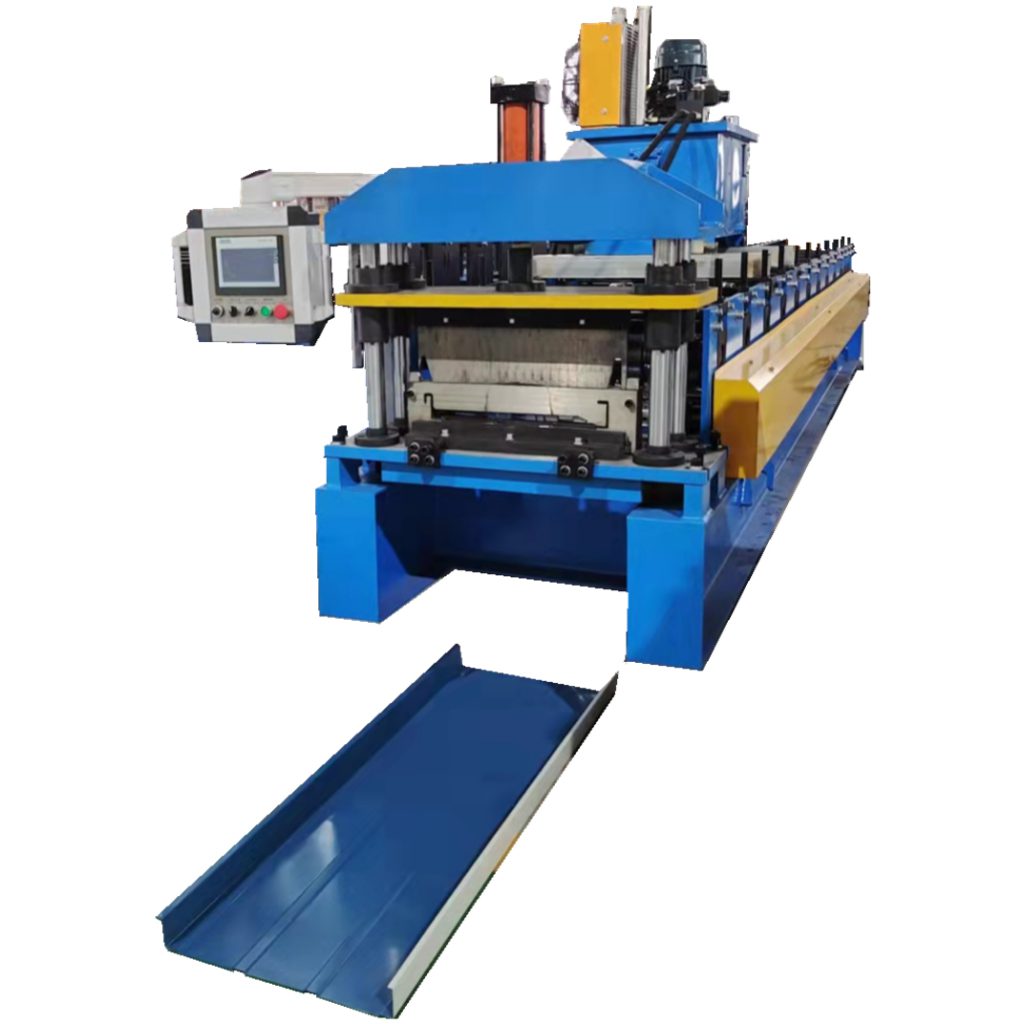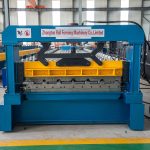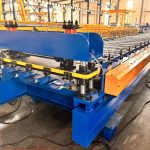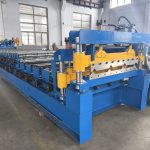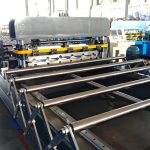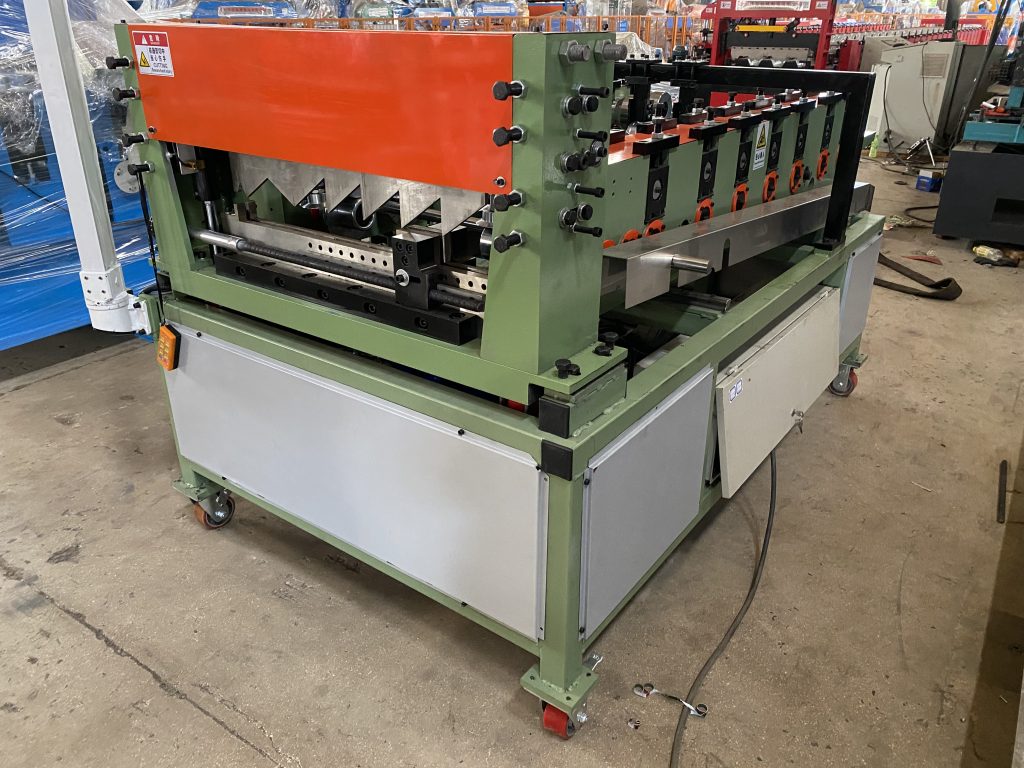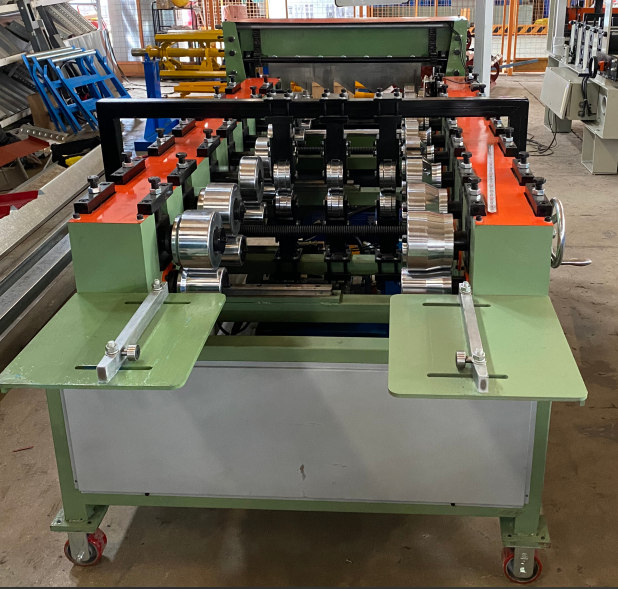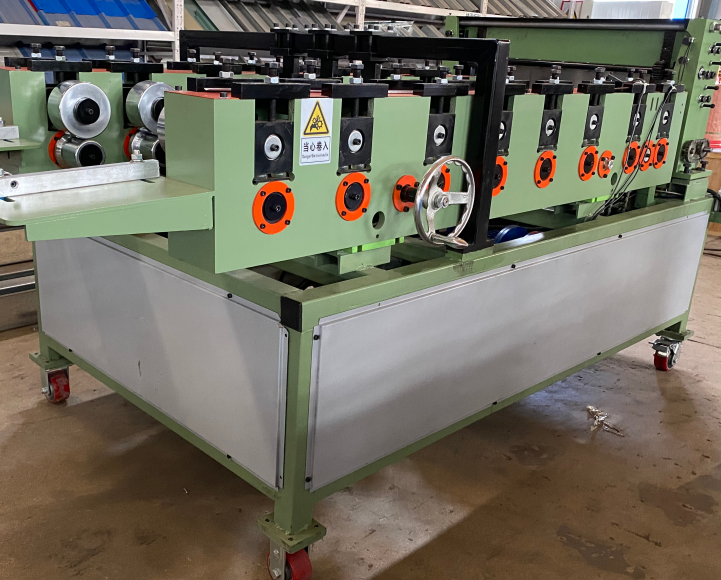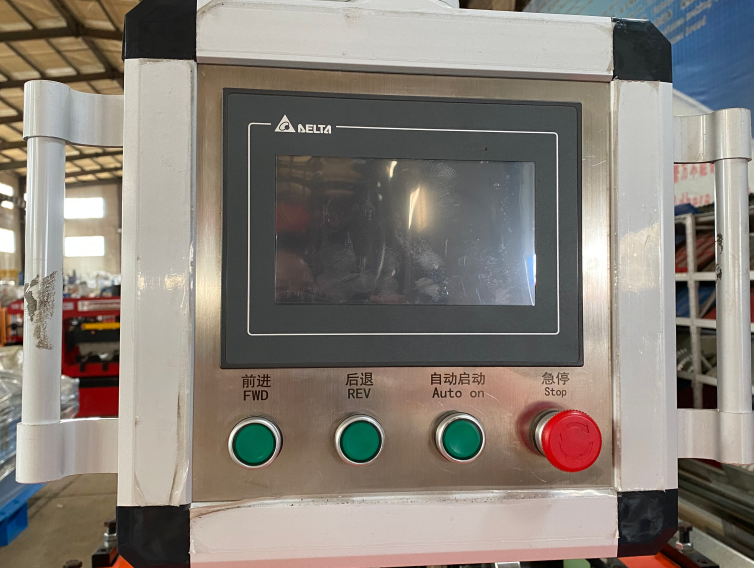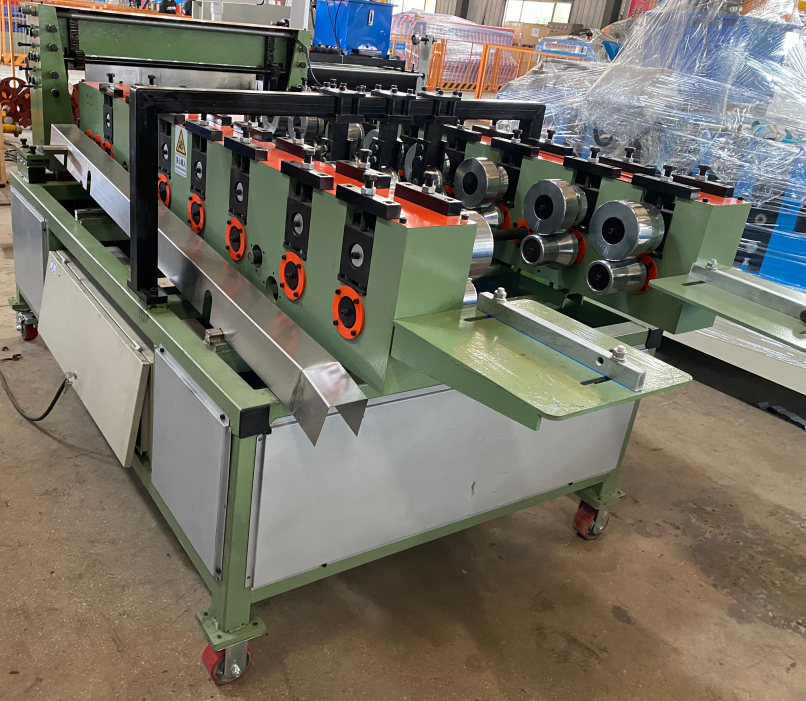Work flow of Portable Standing Seam Roll Forming Machine
https://youtu.be/I93ZhCYxHWU
New Adjustable Automatic Metal Roofing Panel Portable Standing Seam Roll Forming Machine
The standing seam forming machine is a key device in the processing of metal roofing and wall systems. It is mainly used to continuously cold-bend metal coils into plates with interlocking standing seam structures. Its design and functions are continuously optimized according to industry needs. Here is a detailed introduction from multiple aspects:
– Working Principle: The equipment performs progressive cold bending forming on metal coils through a series of precision-arranged roller dies. The metal strip first undergoes uncoiling and leveling before entering the forming process. Each set of dies is responsible for a specific bending angle, gradually processing the flat plate into a cross-sectional shape with upright locking seams.
The standing seam part realizes tight interlocking between plates through special design, which not only enhances the connection strength but also blocks water flow through the height difference, achieving excellent waterproof effect. This cold bending process does not require high-temperature heating, which can maximize the retention of the original properties of the metal material.
– Key Components and Their Functions:
– Uncoiler: Carries the metal coil and stably releases the strip. Some equipment is equipped with an automatic deviation correction function to ensure the accuracy of the feeding direction.
– Leveler: Eliminates the stress and bending generated during the storage of the coil through rolling by upper and lower roller groups, ensuring the flatness of the plate and providing a stable foundation for subsequent forming.
– Forming station: As the core component, it is composed of multiple sets of replaceable dies. Dies can be replaced according to different standing seam specifications (such as height, width, and locking form) to realize the processing of diversified products.
– Seaming device: Performs secondary pressing on the formed standing seams to make the standing seams of adjacent plates tightly interlock, improving the sealing performance and wind resistance of the overall structure.
– Shearing/punching device: Driven by hydraulic or mechanical force, it can automatically shear the plate according to the preset length and punch bolt holes for fixing according to installation requirements, reducing subsequent manual processing steps.
– Stacker: Neatly stacks the processed plates for easy transportation and storage. Some automated equipment can also realize counting and classified stacking of plates.
Main parameters of the machine
| Item | Name | Specifications |
| 1 | Raw material | GI&PPGI |
| 2 | Raw material thickness | 0.8-1.2mm |
| 3 | Decoiler | 5T |
| 4 | Felt device | Available |
| 5 | Roller station | 14stations |
| 6 | Roller material | 45# steel |
| 7 | Shaft diameter | 70mm |
| 8 | Shaft material | 45# steel |
| 9 | Transmission | By double chains |
| 10 | Motor power | 5.5kw |
| 11 | Machine frame | 350H steel |
| 12 | Cutting type | Hydraulic cutting |
| 13 | Hydraulic power | 3kw |
| 14 | Cutting blade material | Cr12 quenched |
| 15 | Cutting tolerance | +/1mm |
| 16 | Control system | Delta/ Siemens PLC |
– Equipment Features:
Modern standing seam forming machines generally have a high degree of automation. For example, the KLS 25-530 model adopts a PLC control system, which can set processing parameters (such as length and punching position) through a touch screen, with fast response speed and production accuracy up to ±0.5mm. The running speed of the equipment can be adjusted, up to 25m/min, which can meet the needs of large-scale production. At the same time, its structural design is compact, occupying a small area, and is suitable for different factory layouts. Some high-end models are also equipped with a fault self-diagnosis function, which can monitor the status of die wear and motor load in real time, reducing the downtime for maintenance.
– Material Application Range: It is compatible with a variety of metal materials, including galvanized steel plates with a thickness of 0.3-1.2mm (corrosion-resistant, moderate in cost, suitable for general buildings), aluminum plates (light in weight, strong in weather resistance, often used in high-end buildings or coastal areas), copper plates (unique in appearance, good in oxidation resistance, mostly used in landmark buildings), and stainless steel plates (high in strength, excellent in corrosion resistance, suitable for special environments such as chemical industry and food industry).
– Application Fields: It plays an important role in various buildings. The roofing of commercial buildings (such as large shopping malls and logistics centers) often uses standing seam plates processed by it, which are both beautiful and durable; public buildings (schools, hospitals) use its waterproof performance to ensure the indoor environment;
industrial plants improve the wind load resistance of the roofing through the standing seam structure; agricultural buildings (barns, farms) value its advantages of convenient installation and low maintenance cost; even in the sloping roofing and wall decoration of high-end residences, standing seam formed plates can be seen.
– Innovative Development: With the integration of intelligent manufacturing technology, standing seam forming machines are constantly upgraded. The color steel standing seam forming machine of Cangzhou Zhongtuo Cold Bending Forming Equipment Co., Ltd., after integrating the Siemens cloud system, can collect equipment operation data in real time (such as forming pressure, speed, die temperature), realize remote monitoring and fault early warning through cloud analysis, so that maintenance personnel can grasp the equipment status without on-site duty, greatly improving management efficiency.
In addition, some equipment has also introduced a modular design, reducing the die replacement time to within 30 minutes, which can quickly switch between different specifications of products, adapt to the production needs of small batches and multiple varieties, and better meet the requirements of personalized architectural design.
Recommend related machine
